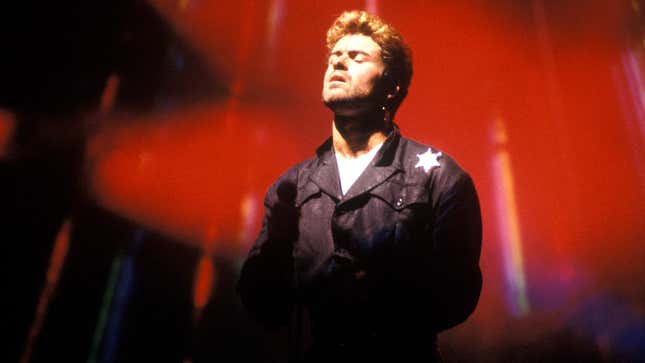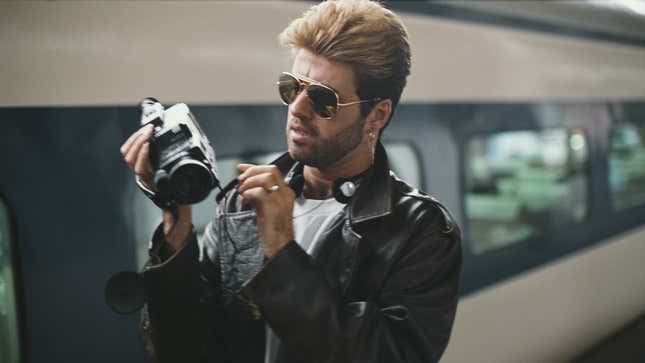George Michael and the High Price of Freedom
A reedited documentary and massive biography reexamine the pop star's pursuit of happiness through lurid details—and occasional self-awareness.
EntertainmentMusic

There’s the story a celebrity wants to you hear, and then there’s the truth. Some moments in the new George Michael documentary Freedom: Uncut blur the line between the two, elevating the movie into momentary transcendence. Almost invariably, these moments come via Michael’s own words. On his early career as the lead in the two-man boy band Wham!, Michael recalls: “We were taking the piss out of ourselves half the time. How could the country be in love with these two idiots?” On his ascendance to stardom that would find him standing shoulder-to-shoulder with titans of ‘80s pop like Madonna, Michael Jackson, and Prince, Michael comments: “If I was looking for happiness, this was the wrong road, but I don’t think there’s any way I could’ve controlled my ego enough to have stopped me exploring the possibility of being the biggest-selling artist in the world.” On his formative influences, Michael recalls owning records by the Supremes and Tom Jones as a child, and then admits with a chuckle that he essentially settled somewhere between the two in his career.
Michael’s aptitude for talking about himself in vivid, pithy terms was part of his job description as a pop star. In a documentary that is presented with such gravity (“HIS FINAL WORK” reads its poster, and friend Kate Moss says in the film’s introduction that he had been working on it in the days leading up to his death on Christmas 2016), his words are a double-edged sword. They give Freedom: Uncut, which Michael co-directed alongside his childhood friend and lifelong confidant David Austin, momentary insight that exceeds your usual pop-star vanity doc, and they also make it clear that he deserved better than what is, in other moments, just another pop-star vanity doc.
We see Michael and Feleppa spending time together (at one point, they pose with Harry of …and the Hendersons fame), though we don’t hear from Feleppa directly. Those that we do hear from are mostly stars who provide shine of their own. In the section of the movie devoted to Michael’s relationship with Black music and embrace by Black audiences (the ballad “One More Try” from his blockbuster 1987 album Faith went to No. 1 on Billboard’s Black Singles Chart, as it was then known), Stevie Wonder makes a joke in reference to Michael’s appeal and his own blindness: “You mean George is white? Are you serious? Oh my God.” Nile Rogers cries while listening to Michael’s cover of Wonder’s “They Won’t Go,” and Mark Ronson compares “Freedom ’90” to the Mona Lisa. Oasis’s Liam Gallagher gushes about Michael’s sophomore solo album, 1990’s Listen Without Prejudice, Vol. 1, and sums up Michael’s Faith-era appeal in three words: “Modern. Day. Elvis.” On appearing in Michael’s iconic “Freedom ’90” video, supermodel Linda Evangelista tells us that “lip-syncing is hard.”
-

-

-

-

-

-

-

-

-

-

-

-

-

-

-

-

-

-

-

-

-

-

-

-

-

-

-

-

-

-

-

-

-

-

-

-

-

-

-

-









































